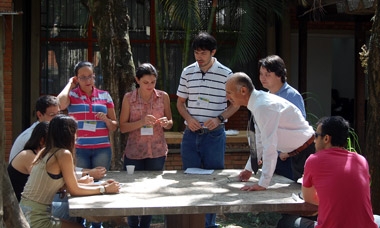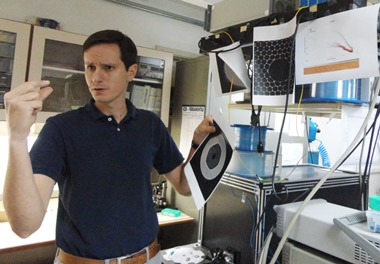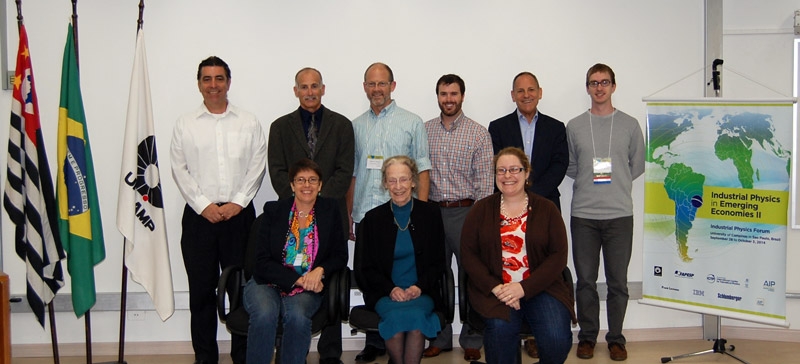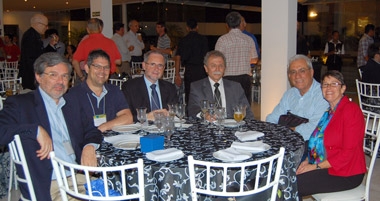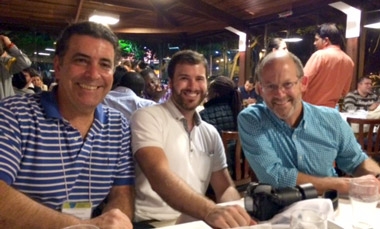Research is indeed a global enterprise. Scientists collaborate with their colleagues across borders, and the scientific workforce is becoming more globally mobile with each passing year. Scientists from all continents publish in premier scholarly journals; this is true across the entire portfolio of AIP journals. While science has been evolving into a borderless endeavor for quite some time, the increasing globalization of industrial physics is a relatively recent phenomenon. The 2014 Industrial Physics Forum (IPF) at the University of Campinas (UNICAMP) in Brazil illustrated this beautifully. Held September 28–October 3 at the Gleb Wataghin Physics Institute at UNICAMP, IPF Brazil explored how physical scientists could contribute to their regions’ emerging economies. The conference drew 200 participants—60 percent of them students—from 20 countries, who engaged with representatives from 20 different companies, ranging from international giants like IBM, to small startups like Altanet Communications. The IPF was divided into two parts. The first three days consisted primarily of talks from scientists in industry discussing their companies’ workforce and technical needs and how the physical sciences contribute to their bottom line. “The Entrepreneurial Professor” sessions were especially popular, as they featured university professors who had also started their own companies. The final two days of the conference featured a short course on entrepreneurship for scientists and engineers led by Doug Arion of Carthage College.
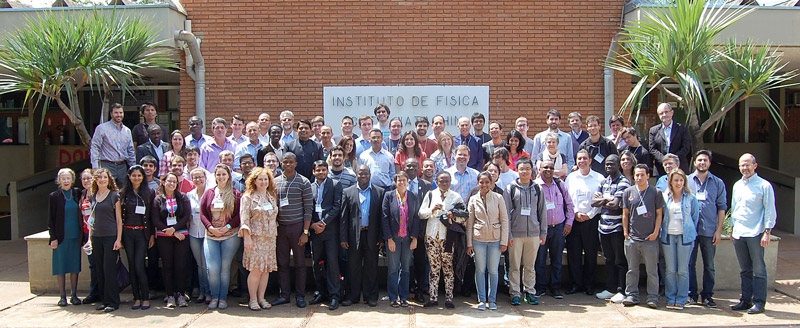
This IPF followed up on the successful Industrial Physics Forum held at the International Centre for Theoretical Physics (ICTP) in Trieste, Italy, in April 2012. The goal of IPF Brazil was to enlarge the regional impact of basic and applied research by promoting links between scientists, industry, and societal needs as key strategies for sustainable technological advancement. Students were a target audience, and the organizers were quite pleased that so many students came, not just from Brazil but from all over, including six from the United States.
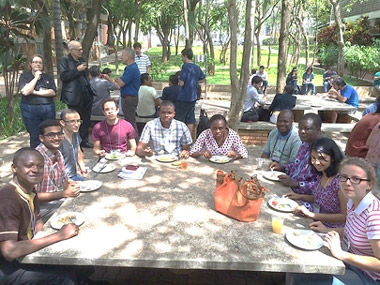
The IPF offered the following sessions:
- Physics and Diplomacy explored the role of scientists in diplomacy, development, and sustainability.
- Trends in Industrial Physics in Emerging Economies examined ways that physical scientists contribute to economic development and respond to the combined opportunities and challenges encountered in emerging economies.
- Innovation in a Global Company featured companies that have a global marketplace and do R&D globally. Speakers illustrated how the physical sciences contribute to innovations, products, and economic growth.
- The Entrepreneurial Professor featured current or former university professors from around the world who have started their own companies.
- Physics in the Brazilian Economy focused on companies with a presence in Brazil and that are thriving due in part to the contributions of physical scientists.
- Physics in the Oil Field looked at the science and technology employed in Brazil’s oil industry.
- Global Industrial Physics illustrated the diversity of applications and industries in which physical sciences play a role in the successes of a range of companies.
- Brazil–US Scientific Partnerships explored how the United States is working with scientists in Brazil to advance common research and development goals.
Participants also received field experience, visiting companies in the region that are putting the physical sciences to work to achieve their strategic objectives.
A complete IPF program can be found on the AIP.org website. Staff will also be posting copies of the speaker presentations, so stay tuned for further information about AIP’s industrial physics resources.
The organizers extend their gratitude to the following organizations and individuals whose funding and support made the Industrial Physics Forum possible: FAPESP, UNICAMP, ICTP, AIP, Frank Levinson, IBM, Schlumberger, and AIP Publishing.
For more information about physics in Brazil, see "Brazil, a hotbed for physics," that appeared in the September 15 issue of AIP Matters.
IPF Brazil in pictures
Contributed by Joe York, Programs Associate
